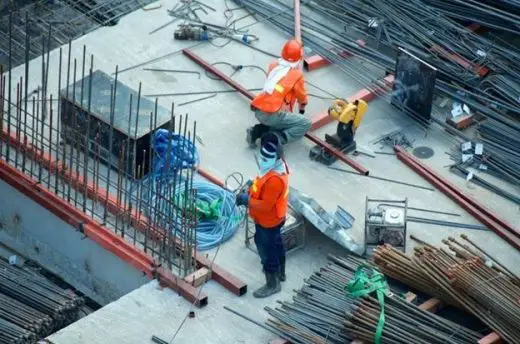Hiring masonry contractors homeowner guide, Bricks stones concrete blocks and tiles materials advice
Hiring masonry contractors homeowner advice
21 Sep 2023
What Every Homeowner Should Know About Hiring Masonry Contractors
When it comes to home improvement projects, masonry work can add both aesthetic appeal and structural integrity to your property. Whether you’re planning to build a stunning brick patio, repair your chimney, or add stone veneer to your home’s facade, hiring the right masonry contractor is crucial to the success of your project. In this guide, we’ll explore what every homeowner should know about hiring masonry contractors to ensure a smooth and satisfying experience.
The Role of Masonry Contractors
Masonry contractors are skilled professionals responsible for working with various masonry materials such as bricks, stones, concrete blocks, and tiles. Their expertise extends to constructing, repairing, and restoring structures, both functional and decorative, made from these materials. From building retaining walls to crafting exquisite fireplaces, masonry contractors play a vital role in transforming your vision into reality.
Qualities to Look for in Masonry Contractors
Before entrusting your project to a masonry contractor, it’s essential to consider their qualifications and characteristics. Here are some qualities to prioritize when making your selection:
- Experience and Expertise
A reputable masonry contractor should have a wealth of experience in the field. Look for contractors who specialize in the type of project you have in mind, whether it’s bricklaying, stone masonry, or concrete work. An experienced contractor is more likely to deliver high-quality results and handle unexpected challenges effectively.
- Licensing and Certifications
Ensure that the masonry contractor you hire holds the necessary licenses and certifications required in your area. These credentials demonstrate their commitment to professionalism and adherence to local regulations. Unlicensed contractors may not meet the same standards and can pose legal risks.
- Reputation and References
Research the contractor’s reputation by reading reviews and asking for references from past clients. Reputable contractors should be willing to provide a list of satisfied customers who can vouch for their work. Contact these references to gain insights into the contractor’s reliability, workmanship, and communication skills.
- Insurance Coverage
Verify that the contractor carries insurance, including liability insurance and workers’ compensation coverage. Insurance protects both you and the contractor in case of accidents or damages during the project. Don’t hesitate to request proof of insurance before signing any contracts.
Understanding Your Project Needs
Before hiring a masonry contractor, take the time to define your project needs clearly. Having a well-defined vision and budget will help you communicate effectively with potential contractors and ensure your project stays on track.
Define Your Vision – Begin by outlining your project goals and expectations. Determine the materials you want to use, the design you envision, and any specific features or functionality you require. A clear vision will guide the contractor in providing accurate estimates and recommendations.
Establish a Realistic Budget – Setting a budget is crucial to prevent overspending and ensure that you’re financially prepared for your masonry project. Research the average costs associated with similar projects in your area to establish a realistic budget range. Be prepared to discuss your budget openly with contractors to find the right fit for your financial constraints.
Requesting Bids and Estimates
Once you’ve identified potential masonry contractors, it’s time to gather bids and estimates for your project. This step will help you compare pricing, project timelines, and the scope of work proposed by each contractor.
Request Multiple Bids
Reach out to at least three masonry contractors to request bids for your project. Avoid accepting the first estimate you receive, as comparing multiple bids will provide a better understanding of the market rates and allow you to make an informed decision.
Compare Estimates Carefully
When reviewing estimates, pay close attention to the details. Ensure that each estimate includes a breakdown of costs for labor, materials, permits, and any additional expenses. The more detailed the estimate, the easier it will be to track expenses and avoid surprises later on.
Obtain Written Contracts
Once you’ve chosen a masonry contractor, insist on a written contract that outlines all project details, including the scope of work, payment schedule, project timeline, and any warranties or guarantees offered. A written contract protects both parties and ensures that everyone is on the same page.
Questions to Ask During the Interview
During your interactions with potential contractors, it’s essential to ask the right questions to gauge their suitability for your project.
- Project Timeline
Ask the contractor about their estimated project timeline. How long will it take to complete the work, and is there flexibility in the schedule to accommodate unforeseen delays?
- Materials and Techniques Used
Inquire about the materials and techniques the contractor plans to use for your project. Are they familiar with the specific materials you’ve chosen, and do they have experience with similar projects?
- Permits and Inspections
Discuss the permits and inspections required for your project. A knowledgeable contractor should guide you through the permitting process and ensure that all necessary inspections are conducted.
- Payment Schedules
Clarify the payment schedule and terms. Typically, contractors require an initial deposit, followed by milestone payments as the project progresses. Ensure that these terms align with your budget and expectations.
Red Flags to Watch Out For
While most masonry contractors are reputable professionals, it’s essential to be aware of potential red flags that could indicate an unreliable or unprofessional contractor.
- Lack of References
Be cautious if a contractor is unable or unwilling to provide references. Transparency and a willingness to share past client experiences are signs of a trustworthy contractor.
- Extremely Low Bids
Beware of contractors who provide significantly lower bids than their competitors. Such bids may indicate the use of inferior materials, subpar workmanship, or hidden costs that could arise during the project.
- Limited Contract Details
A vague or incomplete contract is cause for concern. Contracts should include specific project details, payment terms, and a clear scope of work. If something is missing or unclear, address it with the contractor before proceeding.
Payment and Contract Details
As you finalize your agreement with the chosen contractor, pay close attention to payment and contract details.
- Negotiating Payment Terms
Discuss and negotiate payment terms with the contractor. Determine the amount of the initial deposit and establish a schedule for milestone payments. Avoid paying the full amount upfront.
- Detailed Contracts
Ensure that the contract is comprehensive and includes all project specifics. This includes details about materials, project timeline, cleanup responsibilities, and any warranties or guarantees.
- Handling Change Orders
Be prepared for the possibility of change orders during the project. Change orders involve modifications to the original contract, such as additional work or unforeseen issues. Discuss how change orders will be addressed and how they will impact the project timeline and budget.
The Importance of Communication
Throughout your masonry project, maintaining open and clear communication with your chosen contractor is essential.
Regular Updates
Stay informed about the project’s progress through regular updates from the contractor. Ask questions and seek clarification if something is unclear or unexpected issues arise.
Addressing Concerns
If you have concerns or encounter issues during the project, address them promptly with the contractor. Effective communication can help resolve problems and maintain a positive working relationship.
Final Walkthrough
Upon project completion, conduct a final walkthrough with the contractor to ensure that all work meets your expectations and the terms of the contract.
Hiring masonry contractors homeowner advice Conclusion
Hiring a masonry contractor for your home improvement project is a significant decision that requires careful consideration. By understanding the role of masonry contractors, prioritizing essential qualities, and following best practices for the hiring process, you can ensure a successful and satisfying experience. Remember that communication and due diligence are key to achieving your vision while staying within your budget and timeline.
Comments on this guide to Hiring masonry contractors homeowner advice article are welcome.
Construction
Building Design Posts
Choosing a cohesive design style for your home
Different Types Of Dining Table Materials
Best dining table for your house
Property Design
Residential Architecture Articles
Materials Posts
8 tips to choose the right construction materials
Lignacite Building Matters podcast
Masonry contractors modern innovations
Comments / photos for the Hiring masonry contractors homeowner advice page welcome.








